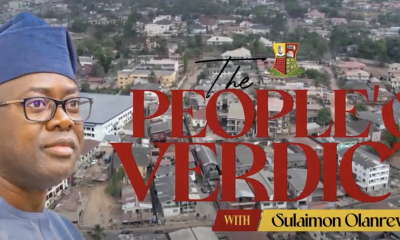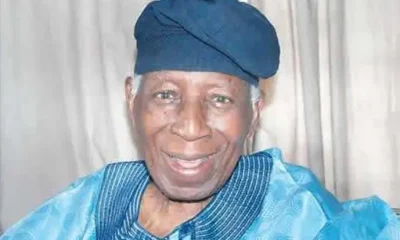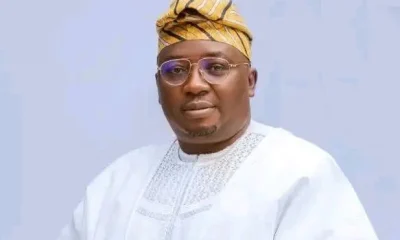Opinion
Ladoja’s acceptance to wear beaded crown : A victory song over Makinde’s naysayers
By Fola Adeyanju
In a dramatic turn of events, the former Governor of Oyo State and the current Otun Olubadan of Ibadan, High Chief Rashidi Ladoja, has finally decided to accept the beaded crown, putting to rest the long-standing controversy surrounding the Olubadan chieftaincy law.
The narrative of a supposed “witch-hunt” against Ladoja by Governor Seyi Makinde has now been shattered, as the esteemed High Chief himself has come forward to embrace the new reality.
For many naysayers, the review of the Olubadan Chieftaincy law was seen as a direct attack on Ladoja, who had earlier refused to accept and wear the beaded crown as one of the requirements to becoming the Olubadan.
Ladoja’s stance was hinged on the belief that he could not wear a lesser crown, but only the main Olubadan crown.
However, the newly reviewed Olubadan Chieftaincy law, re-introduced under Oba Lekan Balogun and gazetted by Governor Makinde’s government, mandated that all Olubadan-in-Council members must wear the beaded crown as a requirement to ascend the Olubadan throne.
This development was viewed by many as a ploy by Makinde to score a political point, by forcing Ladoja to accept the beaded crown against his wish.
In the build-up to the 2023 general election in Oyo State, Ladoja was alleged to have pitched his tent with the opposition, against Makinde’s camp.
As a result, many naysayers opined that after Makinde won the election despite all odds against him, it would now be his turn to deal without pity with Ladoja, whom many have seen as his antagonist.
But in a dramatic twist on Sunday, August 4, on a live radio programme, Ladoja came out publicly to exonerate Makinde of any witch-hunt against him, a statement that has finally vindicated the Governor.
Ladoja’s words, “If what will hinder me from becoming Olubadan is the beaded crown, I will now accept the beaded crown,” have put to rest the long-standing controversy and have shown that Makinde’s intentions were not driven by political vendetta, but rather by a vision to modernize the Olubadan chieftaincy system in line with current trends.
This acceptance by Ladoja is a clear victory song over the naysayers who had accused Makinde of a witch-hunt.
It demonstrates that the Governor’s actions were indeed well-intentioned, aimed at promoting unity and progress within the Ibadanland community.
With Ladoja’s embrace of the beaded crown, the path is now clear for a smooth transition and the preservation of the revered Olubadan title, which remains the only authentic crown in Ibadanland.
This move is a testament to the power of dialogue, compromise, and the willingness to put the greater good of the community above individual preferences.
The naysayers, like the battered and bashed Sola Abegunde and others, who ran their mouths like pigs suffering from diarrhea will bury their heads in shame.
Adeyanju lives in Ibadan


















